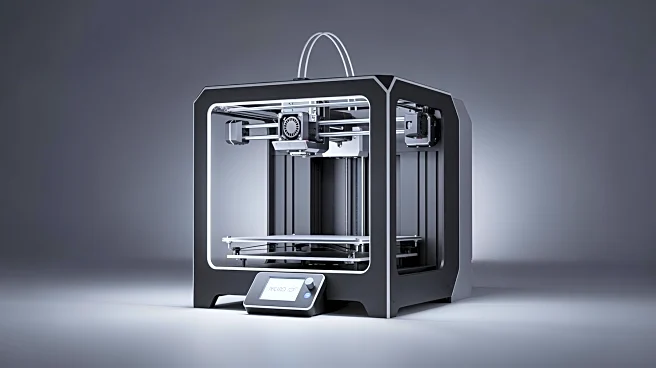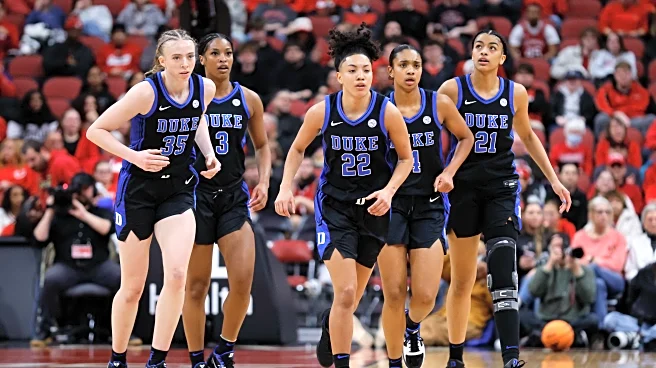What's Happening?
CNET reports significant price reductions on Anycubic 3D printers, making them more accessible to hobbyists and enthusiasts. The Mono M7 Pro model is now available at a record low price of $456, a $234
discount. This model offers high-speed printing at 170mm per hour and features such as auto-fill resin, making it suitable for detailed projects like D&D miniatures. The standard Mono M7 model, priced at $300, also offers fast printing speeds and accuracy, making it a budget-friendly option for those interested in smaller projects. Additionally, Anycubic printer resin is discounted from $37 to $27 for 2kg, with further savings available for bulk purchases.
Why It's Important?
The availability of affordable 3D printers like the Anycubic models can significantly impact the hobbyist market, allowing more individuals to engage in creative projects without the need for substantial investment. This democratization of technology can lead to increased innovation and creativity in fields such as gaming, jewelry making, and other crafts. The reduced prices make high-quality 3D printing accessible to a broader audience, potentially expanding the market and encouraging more people to explore 3D printing as a hobby or small business venture.
What's Next?
As 3D printing technology becomes more affordable, it is likely that more hobbyists and small businesses will adopt these tools for creative and commercial purposes. This could lead to a surge in demand for 3D printing materials and accessories, as well as an increase in community-driven innovation. Companies like Anycubic may continue to offer competitive pricing and develop new models to cater to this growing market, further enhancing the capabilities and accessibility of 3D printing technology.
Beyond the Headlines
The trend towards affordable 3D printing technology raises questions about intellectual property and the potential for unauthorized reproduction of designs. As more individuals gain access to these tools, there may be increased scrutiny on how designs are shared and used, potentially leading to new legal frameworks or industry standards to protect creators' rights.











